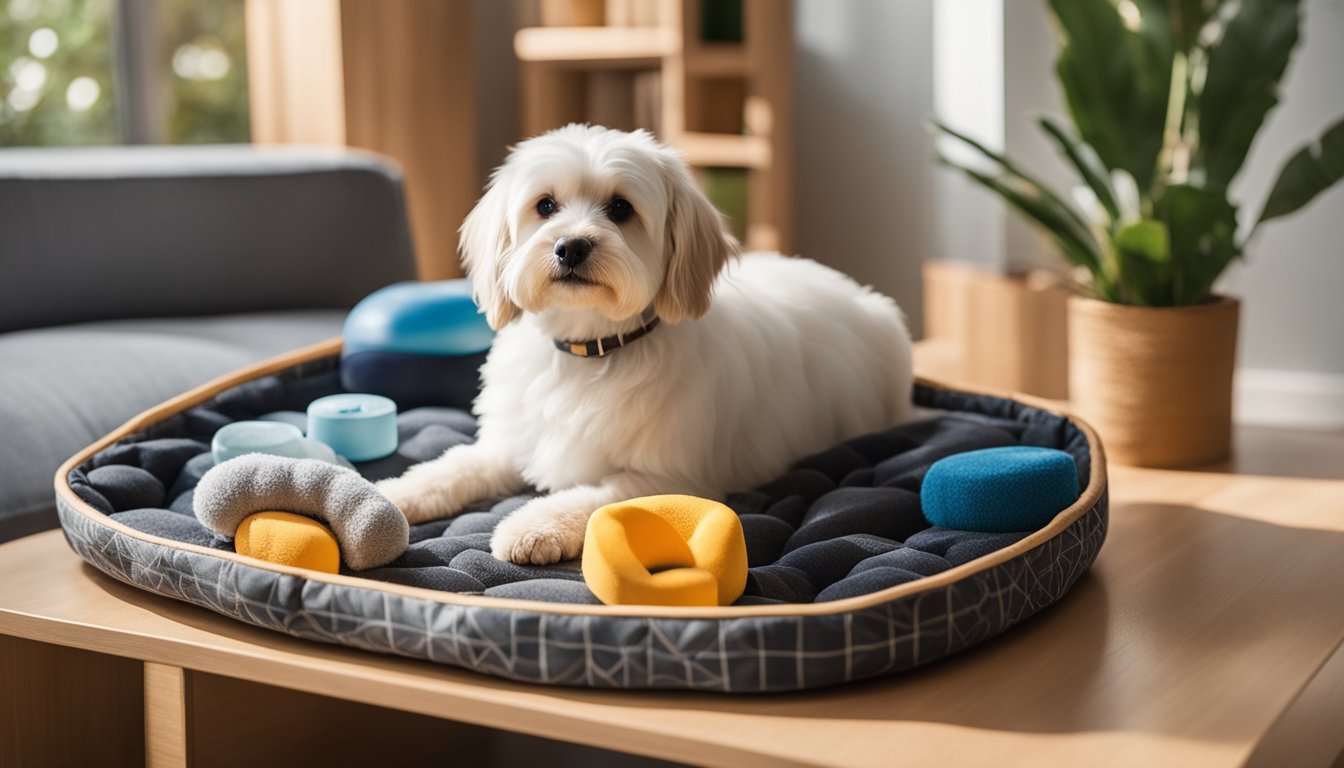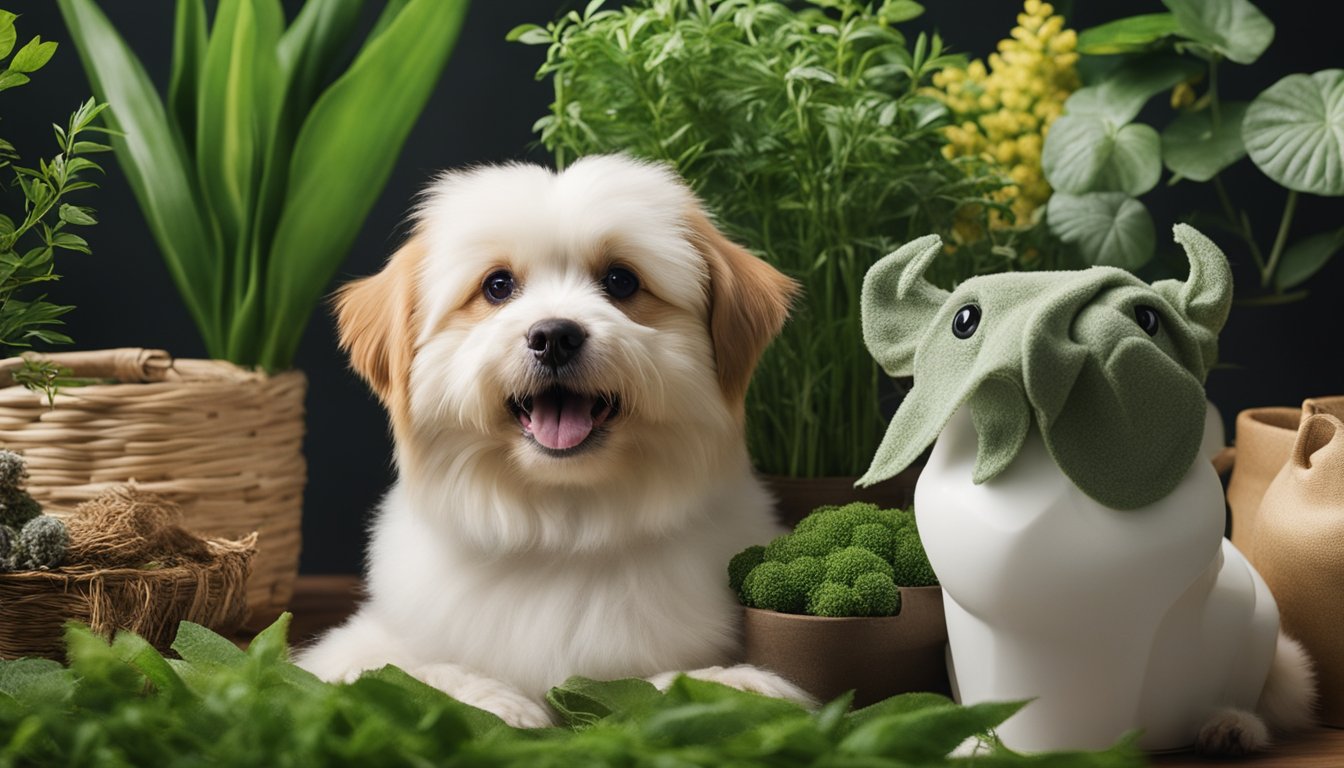Late updated: 06 Nov 2024 10:11
Written by: Sarah Hollister
Sustainable Pet Care Tips For Eco-Friendly Living: Simple Steps for a Greener Home
Caring for our pets is a rewarding experience, yet the environmental impact can be concerning. As responsible pet owners, it's important we consider sustainable practices that promote eco-friendly living. Sustainable pet care involves making conscientious choices about the products we use and the way we manage pet waste to minimise harm to our planet.

By prioritising eco-friendly options, such as choosing biodegradable litter and sustainable pet food, we can significantly reduce our pets' carbon pawprints. Adopting these practices not only benefits the environment, but it also promotes the overall health and happiness of our furry friends.
Let's explore practical tips, from selecting sustainable pet products to embracing waste management solutions. This guide will help you align your pet care routines with eco-conscious values that benefit both your pet and the planet.
Key Takeaways
- Embrace sustainable pet products and waste management.
- Adopt eco-friendly practices for better pet care.
- Explore answers to frequently asked questions on sustainable pet care.
Sustainable Pet Products and Waste Management
Adopting sustainable practices for our pets not only benefits the environment but also enhances the health and happiness of our furry companions. Two key areas to focus on are waste management solutions such as biodegradable bags and sustainable food options featuring natural ingredients.
Eco-Friendly Pet Waste Solutions
Dealing with pet waste responsibly is a significant aspect of sustainable pet care. Biodegradable poop bags offer an excellent alternative to traditional plastic ones, breaking down more quickly in landfill conditions. Similarly, compostable poop bags can be composted where local facilities exist, turning waste into useful compost. We can even consider composting pet waste at home for further sustainability, though the process requires careful management to avoid health risks.
For cat owners, eco-friendly cat litter is a practical choice. Options made from recycled materials or sustainable materials such as wood, wheat, or paper provide effective waste absorption without the environmental burden of clay-based litters. These choices minimise our ecological footprints while maintaining high standards of cleanliness and hygiene for our pets.
Choosing Sustainable Pet Foods and Accessories
Selecting the right pet food is more than just a matter of health—it's also an opportunity to support sustainable practices. Sustainable pet food is often made with natural ingredients and organic options that promote health while reducing environmental impact. Eco-friendly packaging helps minimise waste, giving us another point to consider when shopping for our pets' dietary needs.
When choosing accessories, we should look for environmentally friendly pet products made from sustainable materials. Items like toys, beds, and grooming essentials crafted from recycled materials can significantly reduce resource reliance. Opting for such products not only supports eco-friendly initiatives but also ensures our pets receive high-quality care items.
Adopting Sustainable Pet Care Practices

Incorporating sustainable practices into pet care involves making mindful choices that reduce our pets' impact on the environment. Our focus will include making responsible decisions and maintaining pet health in an eco-friendly manner.
Responsible Pet Ownership and Environmental Impact
As responsible pet owners, it's important for us to understand how our choices can affect the environment. We can reduce the carbon pawprint by opting for eco-friendly pet care products. For instance, adopting pets from shelters not only helps control overpopulation, but also requires fewer resources than breeding.
Pet waste management plays a crucial role in sustainable pet ownership. Using biodegradable waste bags or a pet waste digester can minimise our environmental impact. It's also wise to avoid overbuying pet products, focusing on essentials and opting for sustainable materials, such as eco-friendly dog beds and biodegradable cat litter. Low-impact pet ownership means considering the environmental cost of each purchase.
Natural Pet Grooming and Healthcare
Natural grooming products are an excellent choice for eco-conscious pet carers. Opting for shampoos and conditioners made from sustainable ingredients reduces exposure to harsh chemicals and lowers the risk of pollutant runoff. Flea and tick prevention can be approached with natural treatments or eco-friendly flea collars.
Maintaining health through proper grooming helps prevent issues like pet obesity. Homemade pet food, crafted from ethically-sourced ingredients, ensures a balanced diet. We should also consider natural cleaning supplies to keep pet areas hygienic without harmful chemicals. Prioritising zero-waste pet care practices ensures that we provide thorough, yet environmentally considerate, grooming and healthcare.
Frequently Asked Questions

In sustainable pet care, choosing eco-friendly products, opting for pets with lower environmental impacts, and improving pet food practices can make a considerable difference. We focus on practical steps for reducing the ecological footprint of pets.
What are the best eco-friendly pet products currently available?
Eco-friendly pet products include toys made from natural materials, biodegradable pet waste bags, and grooming products with organic ingredients. Choosing brands that prioritise sustainable production processes ensures we minimise our pets' environmental impact.
Which pet has the lowest environmental impact?
Pets like rodents, fish, and reptiles often have a lower environmental impact compared to larger animals. Their diet typically consists of less resource-intensive foods, and they generate less waste, making them a more sustainable choice for eco-conscious pet owners.
How can dog owners adopt a more sustainable approach to pet care?
For dogs, using durable, long-lasting toys and transitioning to biodegradable waste bags can significantly reduce waste. Feeding them sustainable pet food options and investing in organic grooming products also contributes to a more eco-friendly lifestyle.
In what ways can the sustainability of pet food be improved?
Sustainable pet food options often feature organic, local, or plant-based ingredients. Emphasising transparent sourcing and ethical manufacturing processes, these products help reduce resource consumption and environmental impact, while still meeting our pets' nutritional needs.
Are there environmentally friendly waste disposal options for pets?
Biodegradable pet waste bags and composting are effective waste disposal methods. Some companies offer disposal systems that convert pet waste into odourless compost, providing an eco-friendly alternative to traditional methods.
How can the carbon pawprint of domestic animals be reduced?
Reducing the carbon pawprint involves using energy-efficient grooming appliances, choosing sustainably sourced food, and reducing waste through recycling or composting. Every small change we make contributes to a more sustainable and eco-conscious lifestyle.
